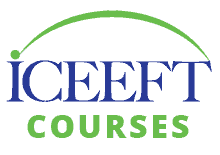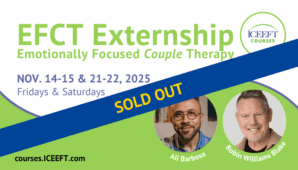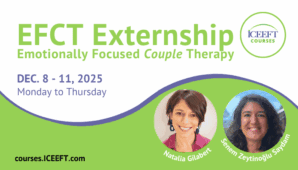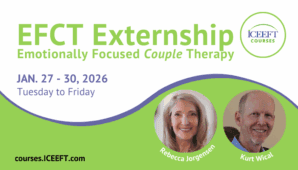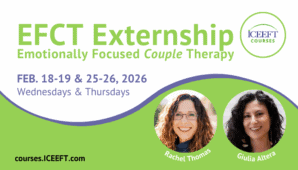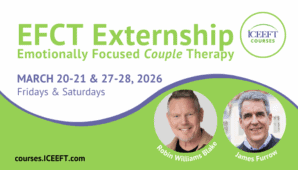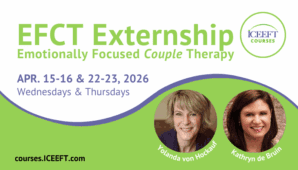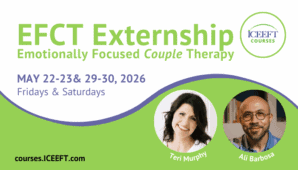Learn EFCT: Emotionally Focused Couple Therapy
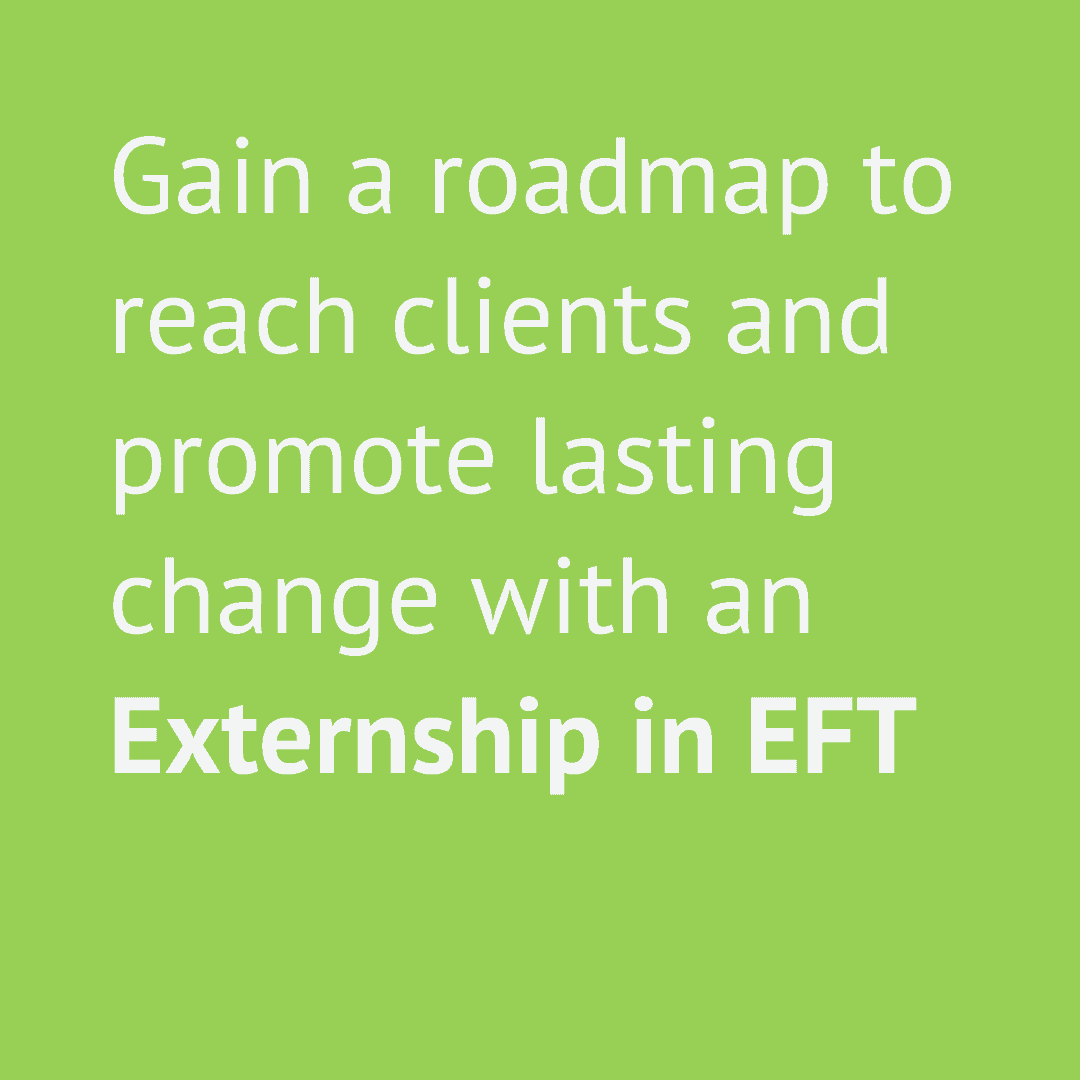
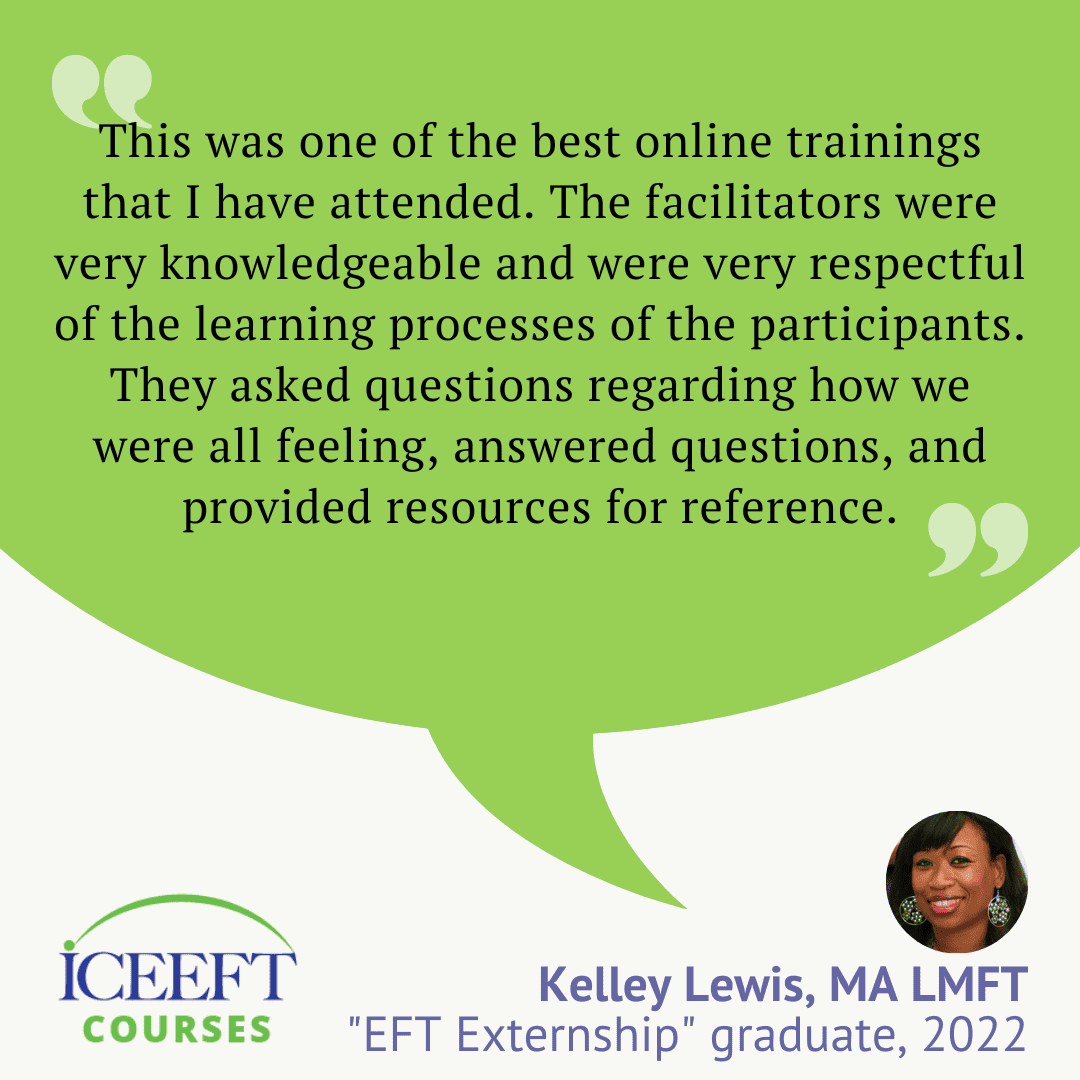
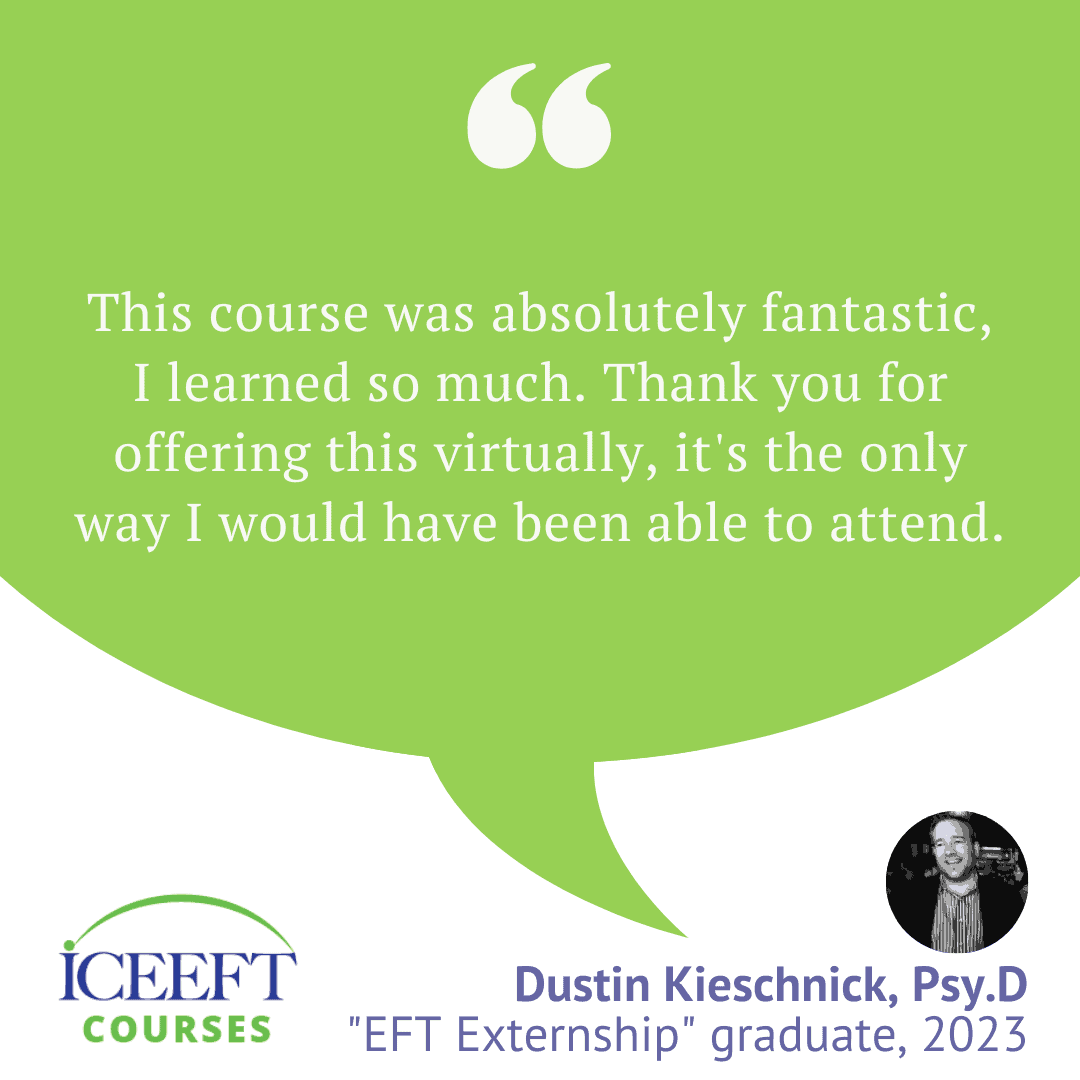
What is EFCT?
Emotionally Focused Couple Therapy (EFCT) is a short-term structured approach, encompassing 8 to 20 sessions, established in the 1980s based on attachment science. It employs a humanistic, experiential approach to restructure emotional experience, alongside a systemic structural approach to amend interactions. Extensive research underpins EFCT’s effectiveness, showcasing substantial treatment effect sizes with enduring results. EFCT has been utilized successfully across diverse settings and with various couples facing challenges like depression, anxiety, or forgiveness dilemmas. It’s employed across North America, Europe, Australia, among others, with both traditional and non-traditional couples, demonstrating its wide applicability and effectiveness. Discover how EFCT can revolutionize your work with couples by exploring our courses below.
Which modality is right for me?
EFCT is most effective for working with couples. EFFT is the most appropriate modality for working one-on-one with children and youth, as well as with caregivers and their children (including adult children). EFIT is most effective for working one-on-one with adults.
Features of learning with ICEEFT Courses
ICEEFT Courses offers online trainings, in English, in North America. For EFCT Externship training elsewhere in the world, in other languages, or in-person within North America, please visit the ICEEFT Event List.
- All our courses offer CEs; learn more on our CE page.
- All our live-online courses include a 40min lunch + two 10min breaks each day.
- A certificate of completion is available for all our courses.
ICEEFT Courses does not offer EFCT Core Skills; please visit the ICEEFT Event List for Core Skills hosted by affiliated EFT communities.
Pathway to EFCT Certification
ICEEFT updated certification pathways 2024, creating therapist certification paths for EFIT and EFFT.

Courses in Emotionally Focused Couple Therapy
Mental health professionals have a range of training options for Emotionally Focused Couple Therapy.
Introducing “Fundamentals of EFT”
Engage with the essence of Emotionally Focused Therapy (EFT) and attachment science; this 6.25-hour workshop provides practical tools to enhance your therapeutic practice across individual, couple, and family modalities. Learn more about Fundamentals
Prerequisites: none. We recommend Fundamentals precede any other course. This is not a requirement; this course is not required for therapist certification. Fundamentals can also be taken after other courses, as it provides context for EFCT, EFIT, and EFFT.
Introducing EFCT Externship
An Externship in Emotionally Focused Couple Therapy® is an immersive four-day (24+ hour) training experience, foundational for therapists aiming to specialize in EFCT. Led by certified trainers, it offers a comprehensive introduction to the EFCT model, focusing on the science of attachment and the systematic approach to couple therapy. This training is crucial for therapists because it equips them with the necessary skills to foster secure, resilient relationships in therapy. It’s the first step in formal EFCT training, opening the door to advanced practice and certification, enhancing therapists’ efficacy and confidence in their clinical work with couples.
Prerequisites: none. ICEEFT recommends taking Fundamentals of EFT prior to this course.
This experiential training is presented live-online and includes:
- live therapy sessions demonstrating how to employ the EFT Tango methodology
- recorded therapy sessions (individual and couple) for discussion
- presentations of theory and clinical techniques
- skill training exercises
- discussion of cases
What will I learn in an Externship?
- Participants will gain a clear understanding of the basic experiential and systemic concepts of an “Emotionally Focused Therapy” approach.
- Participants will be able to view clients in their negative interpersonal attachments and conceptualize relationship distress and repair based on theories of attachment and emotion
- EFT is a relational therapy. The externship will focus on the general model of EFT as laid out in the 2019 book, Attachment Theory and Practice, and present the model as it is implemented in couple and individual therapy sessions.
- Participants will develop skills in sharing, maintaining an engaged, open and collaborative alliance with clients.
- Participants will develop skills in the 5 moves of the basic macro-intervention – the EFT tango – in order to change patterns of affect regulation, models of self and other, strategies for engaging with others and interactional patterns.
- Participants will develop skills in EFT micro interventions taken from experiential and systemic models of intervention.
- Participants will develop skills in overcoming common blocks and impasses in all three therapy modalities and so shaping core corrective emotional experience that lead to constructive dependency and what Rogers termed ‘existential living’.
Introduction to Attachment Theory & the Process of EFT
- Outline attachment science as a guide to psychotherapy ― EFIT, EFCT, EFFT.
- Describe the nature and causes of relationship distress.
- Understand basic Attachment Theory and how it informs working with couples, dyads and individuals in EFT.
- Understand and describe the systemic and experiential elements of EFT and the EFT Tango.
- Understand and describe change factors involved in moving from distress to recovery.
- Understand and describe the three Stages of EFT.
- Learn and practice basic empathy and reflection of inner and between dramas that are central to the therapeutic process in EFT.
Stage One ― Assessment & Alliance
- Understand and practice assessment skills in EFT.
- Understand and practice how to create a therapeutic alliance using: empathic attunement, validation, acceptance, genuineness, and Stage One of the EFT Tango.
- Understand and practice how to enter experience of partners to find out how each constructs his/her experience of their relationship.
- Understand and practice how to track and frame the sequences of interaction that perpetuate distress and disconnection.
- Understand and practice how to frame the negative cycle (e.g., pursue/withdraw) emphasizing attachment needs (e.g., closeness, connection, importance of the other, fear of loss).
- Understand assessment and the EFT Tango as used in Stage One.
Stage Two ― EFT Interventions and Change Events
- Understand and describe systemic and experiential theories that underlie EFT interventions.
- Learn and practice the basic EFT interventions for assembling and deepening emotion, and micro interventions: reflection, validation, evocative responding, empathic conjecture, and heightening.
- Learn and practice how to use RISSSSC to heighten emotional experience.
- Learn and practice how to facilitate Stage Two interaction between partners by using enactments.
- Learn how to put the interventions together to facilitate change events.
- Be able to describe the three change events in EFT for couples: de-escalation, withdrawer engagement and pursuer
- Practice the skills of evoking, assembling, and deepening.
- Practice the skills of facilitating acceptance (Move 4 of the EFT Tango).
- Learn to choreograph Stage Two change events using enactments.
Becoming an EFT Therapist, Attachment Injuries
- Learn the EFT Tango as applied to individuals in EFIT (28-hour version only).
- Understand attachment injuries from an Attachment Theory perspective.
- Understand the steps toward resolving attachment injuries, creating forgiveness.
- Describe key interventions with escalated couples.
- Learn and practice EFT skills toward resolving attachment injuries.
- Understanding an EFT approach to managing co-morbidities such as depression and sexual dysfunction.
- Outline the process of becoming an EFT Therapist.
Introducing EFCT Core Skills
ICEEFT Courses does not host EFCT Core Skills; you may visit ICEEFT’s website for information about Core Skills. Please visit the ICEEFT Event List for Core Skills hosted by affiliated EFT communities.
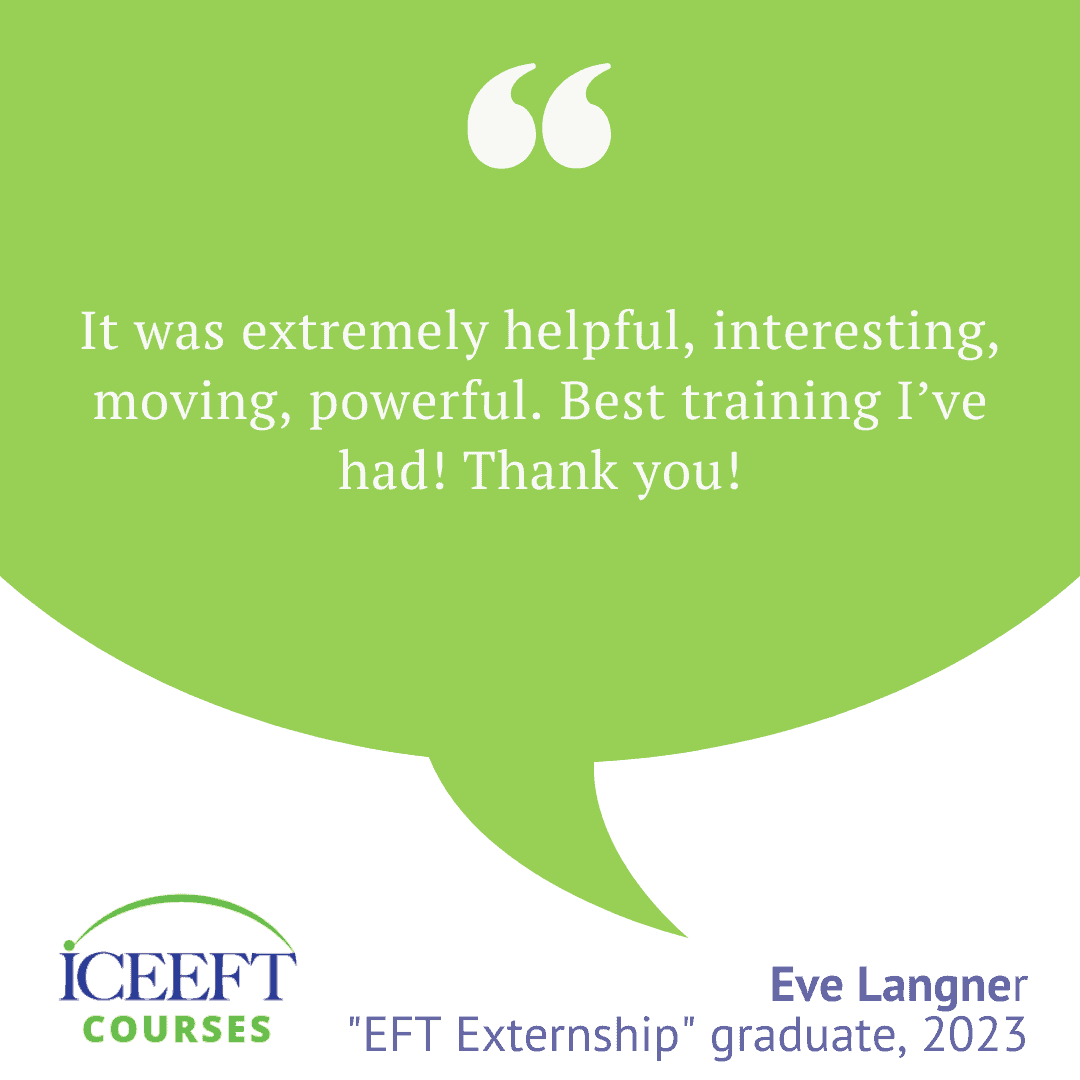
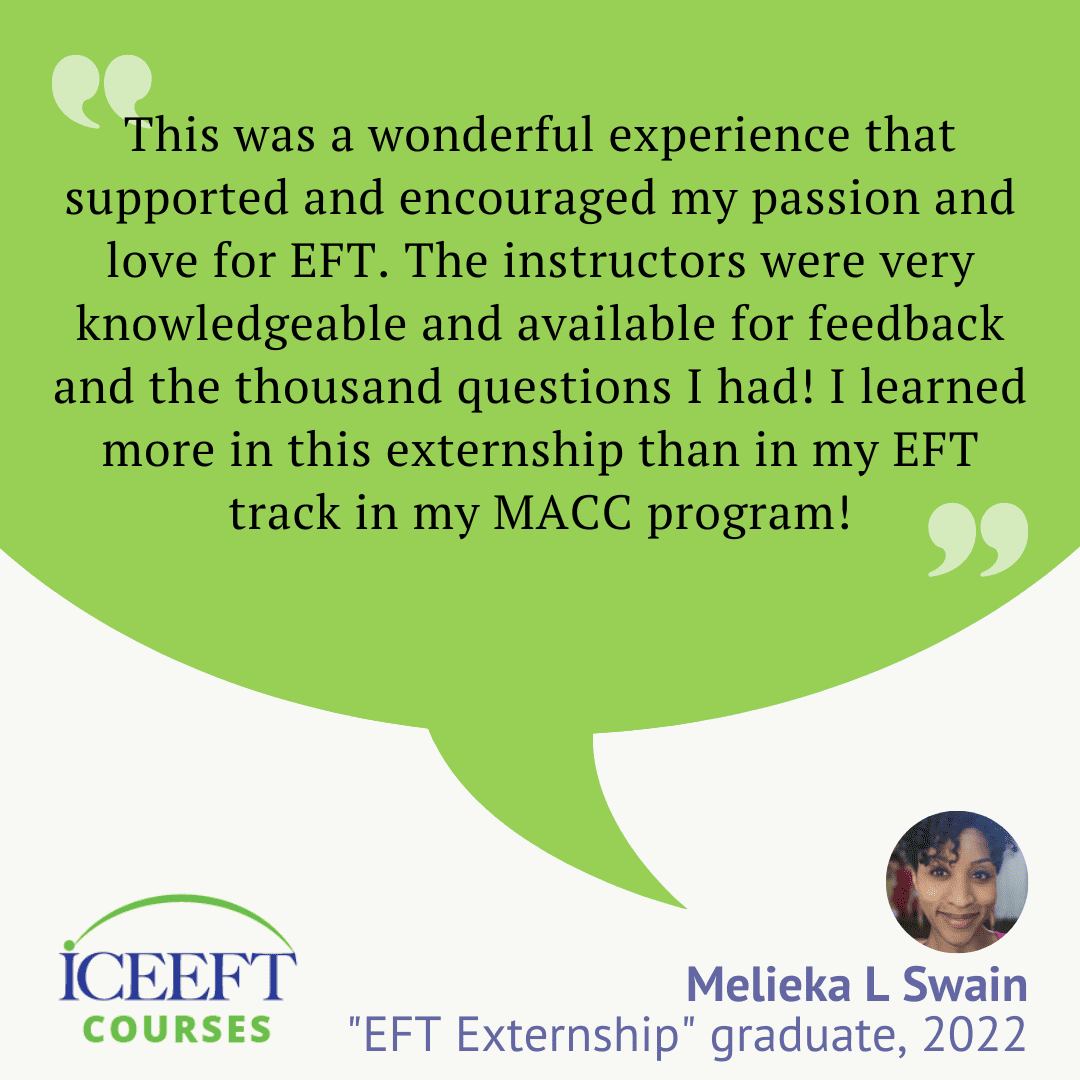
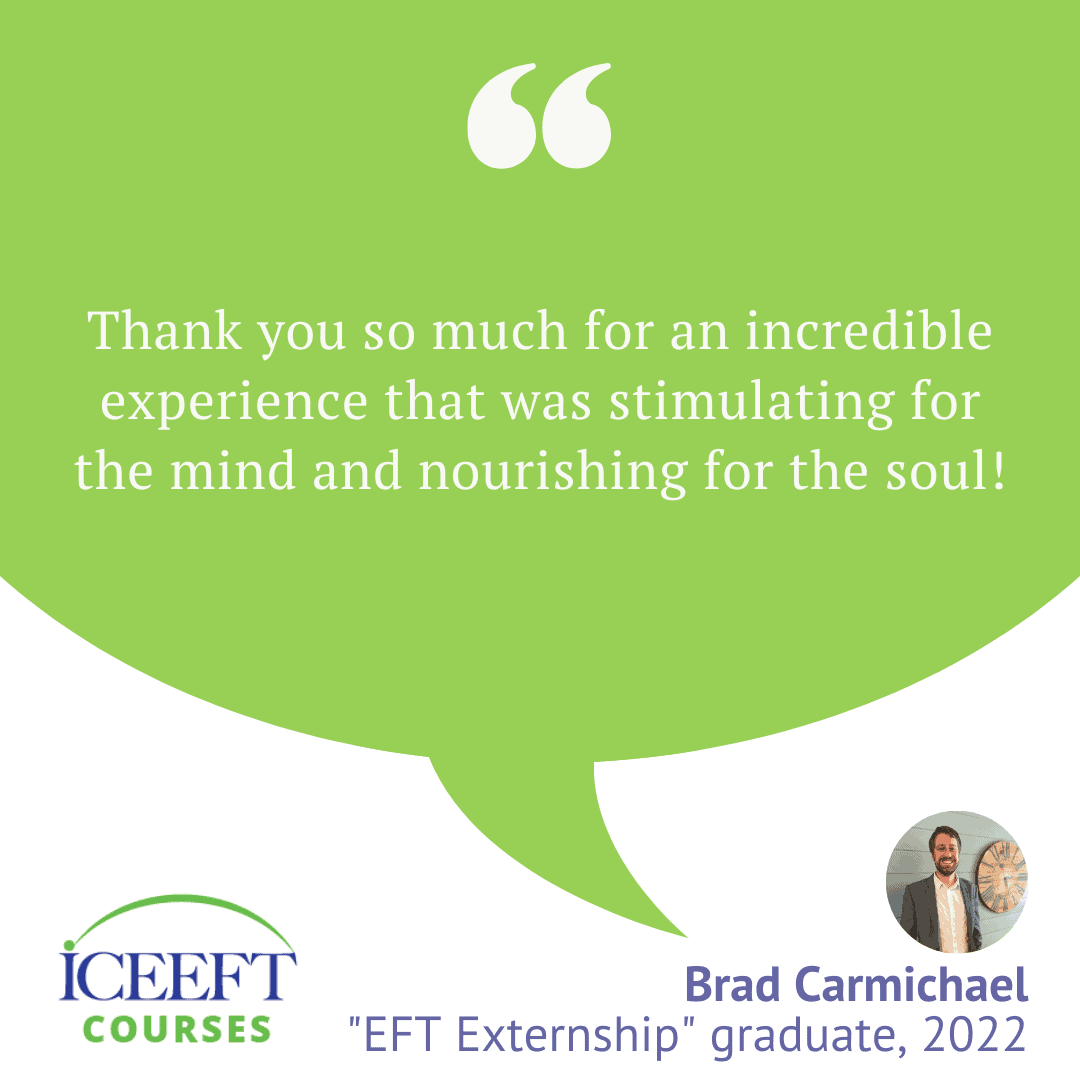
Ready to start learning EFCT?
These live-online Externship training events are coming up next. Click through to register today!
ICEEFT Courses offers online trainings, in English, in North America. For Externship training elsewhere in the world, in other languages, or in-person within North America, and all Core Skills training, please visit the ICEEFT Event List.
2025 Nov | EFCT Externship Sale has ended
2025 Dec | EFCT Externship Sale has ended
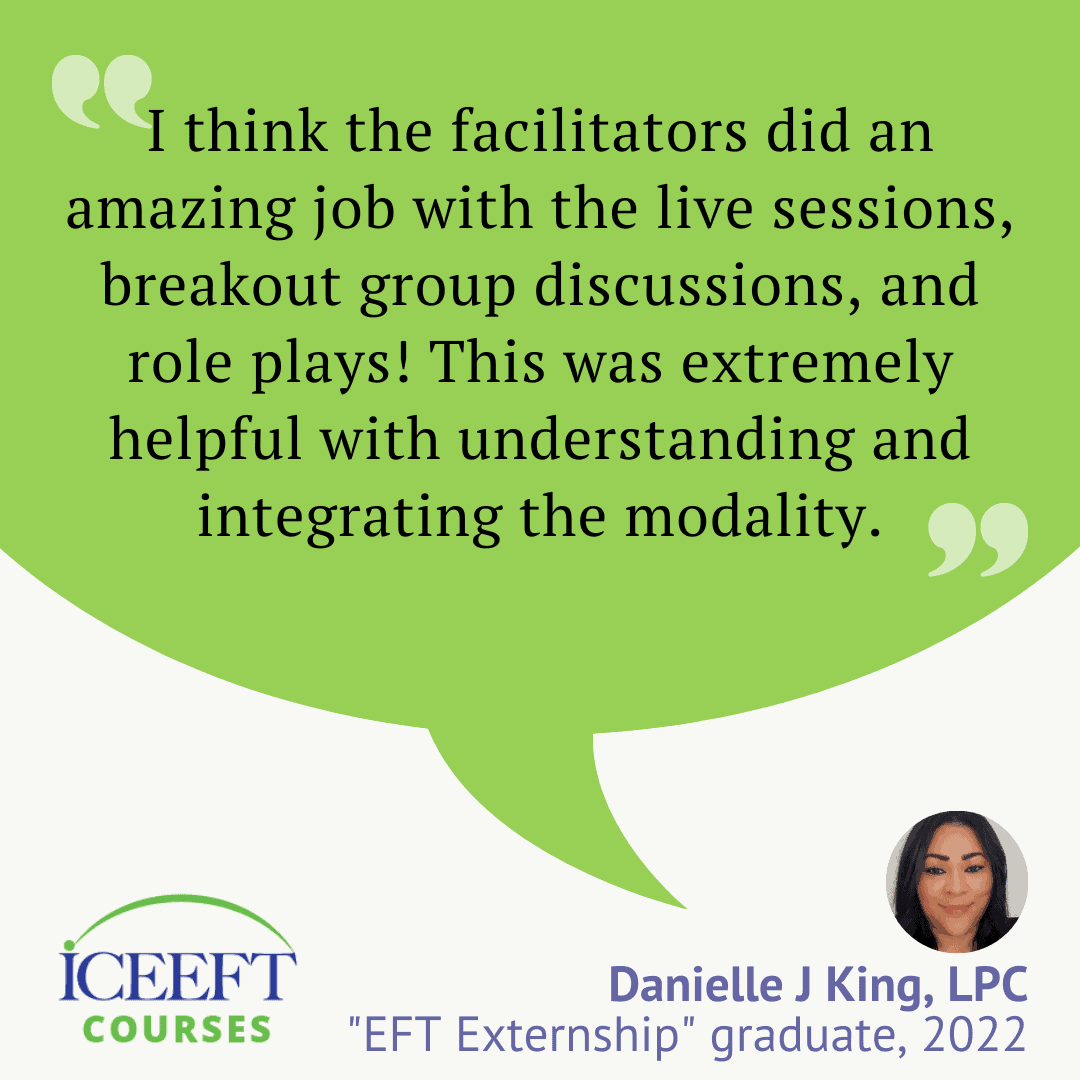
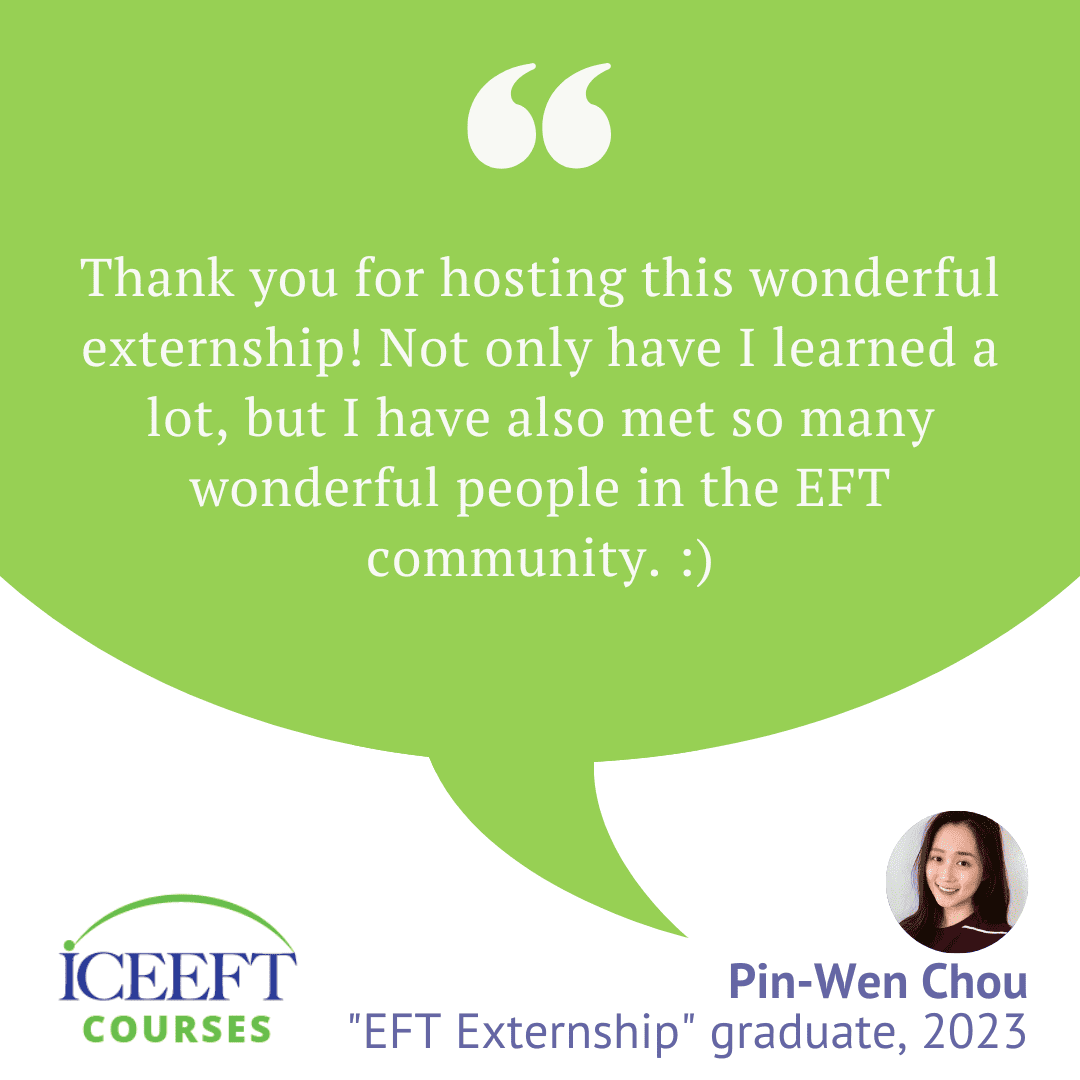
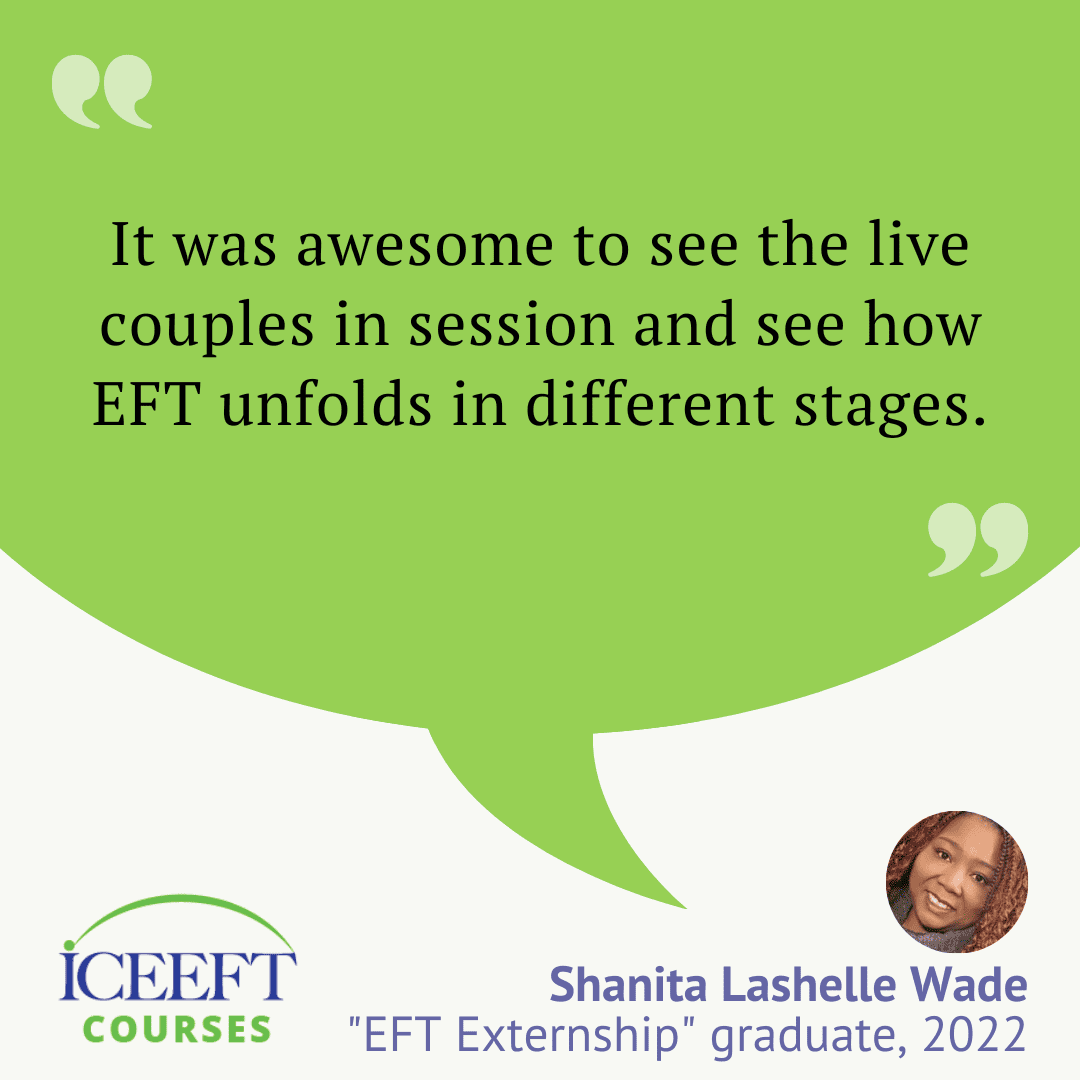
Membership Promotion
Complete an EFCT Externship and gain your first year of ICEEFT Membership free. Learn about the benefits of membership.
“Membership in ICEEFT offers a supportive platform to learn, improve my skills using EFT, connect with different EFT communities around the world, and allows potential clients to find me.”
Aaron Oog, MCounsPrac., MFT
Joining ICEEFT has helped me personally and professionally. I have benefitted from growing my practice, learning more about stuck spots, and even improved my marriage. What a gift.
Dr. Dianna Troutt, LMFT, LPCC
Readings
Discounts
Each publisher offers Courses attendees a discount of 15-25% off the following texts. Once you have registered for a course, you may access the relevant discount codes via the Courses Portal.
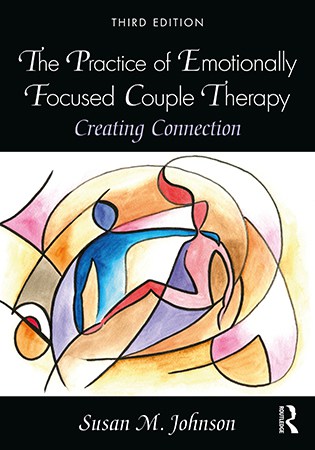
Required
“The Practice of Emotionally Focused Therapy: Creating Connection” 3rd edition, by Susan M. Johnson, 2022.
Routledge offers this publication in paperback, hardcover or eBook.
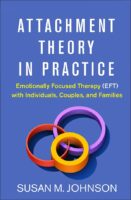
Recommended
“Attachment Theory in Practice: Emotionally Focused Therapy (EFT) with Individuals, Couples, and Families” by Dr. Susan M. Johnson, 2019.
Guilford Press offers this publication in hardcover or eBook.
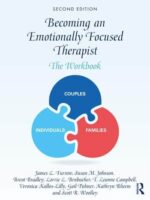
Recommended
“Becoming an Emotionally Focused Therapist: The Workbook (2nd Edition)” by James L. Furrow, Susan M. Johnson, Brent Bradley, Lorrie L. Brubacher, T. Leanne Campbell, Veronica Kallos-Lilly, Gail Palmer, Kathryn Rheem, Scott R. Woolley, 2022.
Routledge offers this publication in paperback, hardcover or eBook.
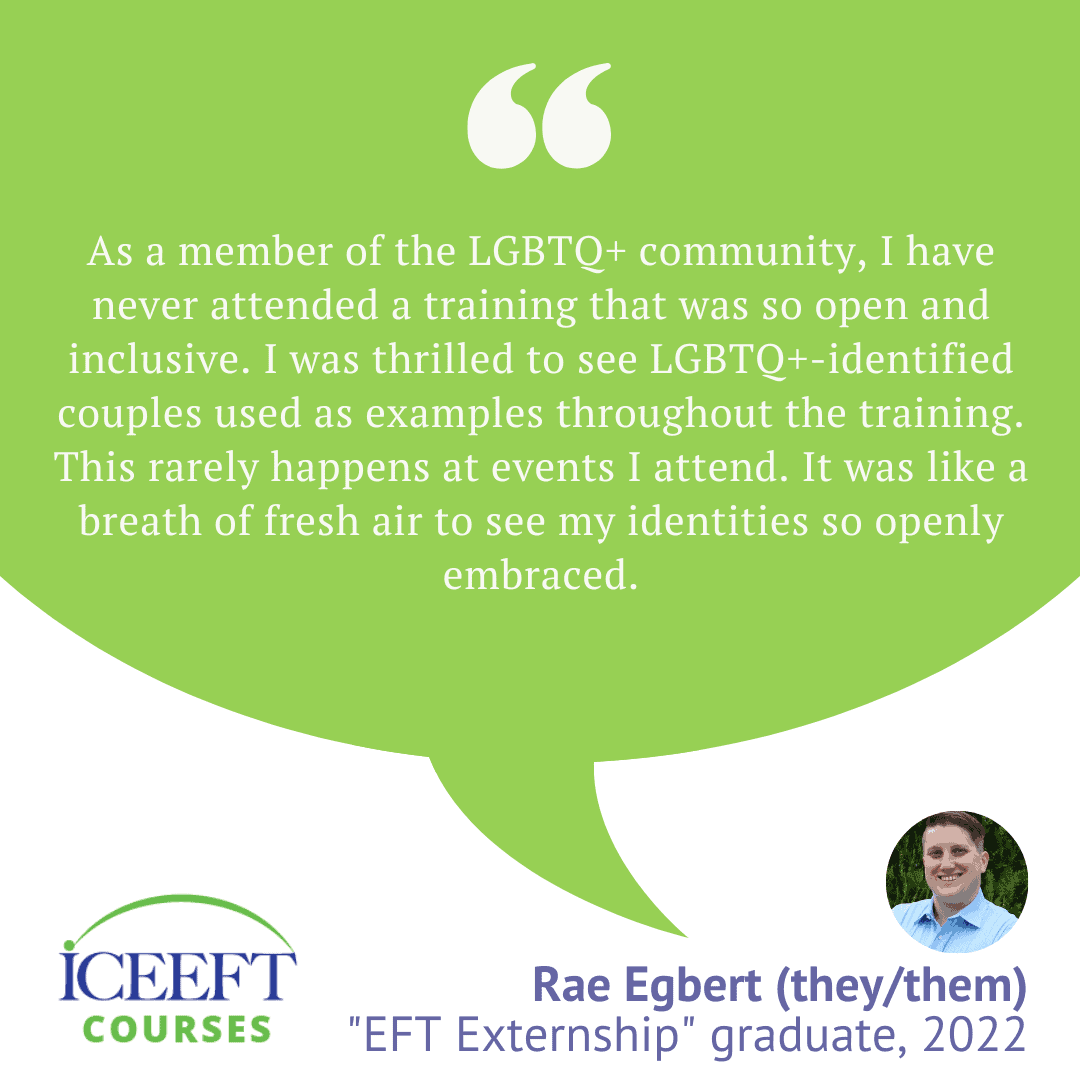
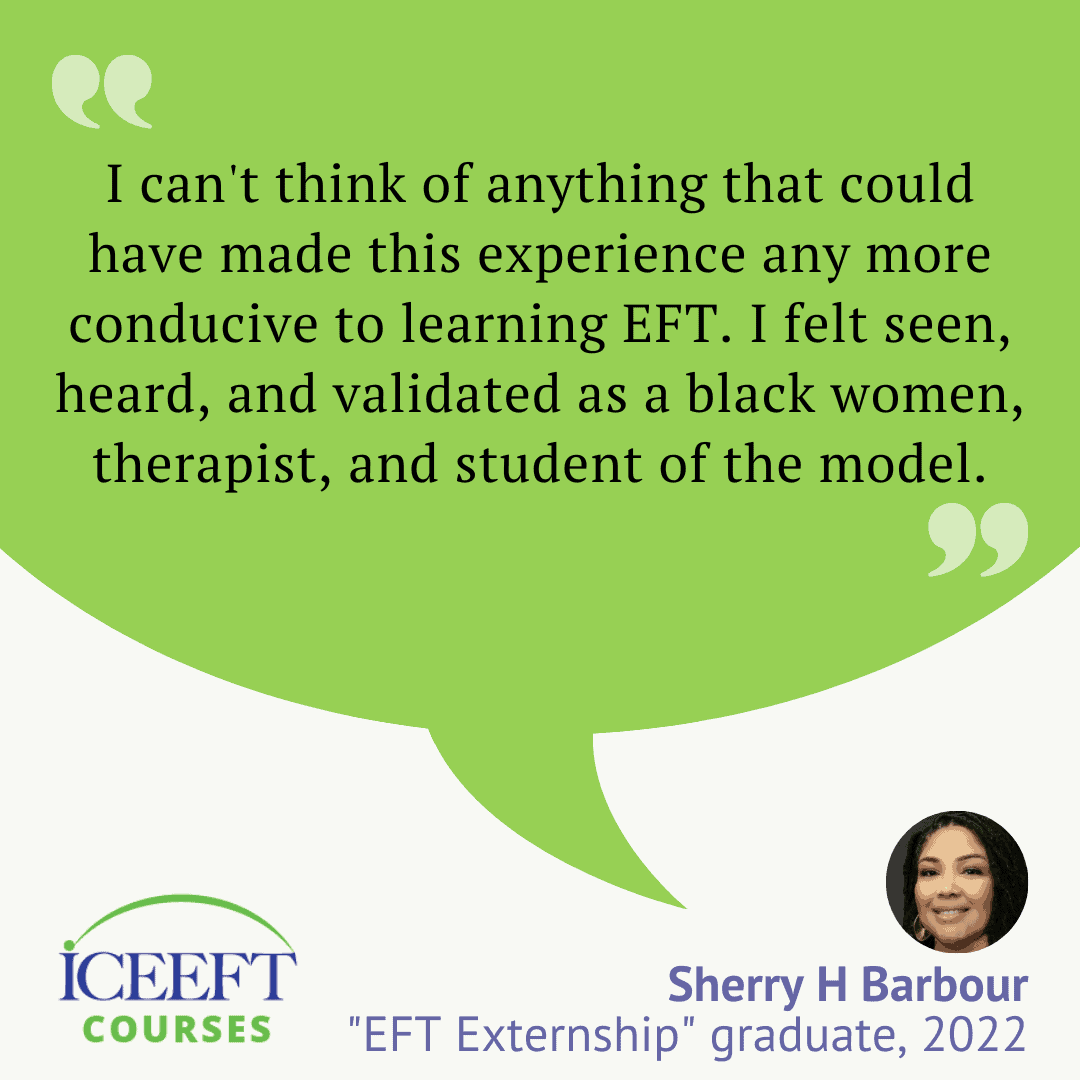
If you'd like to stay connected please
